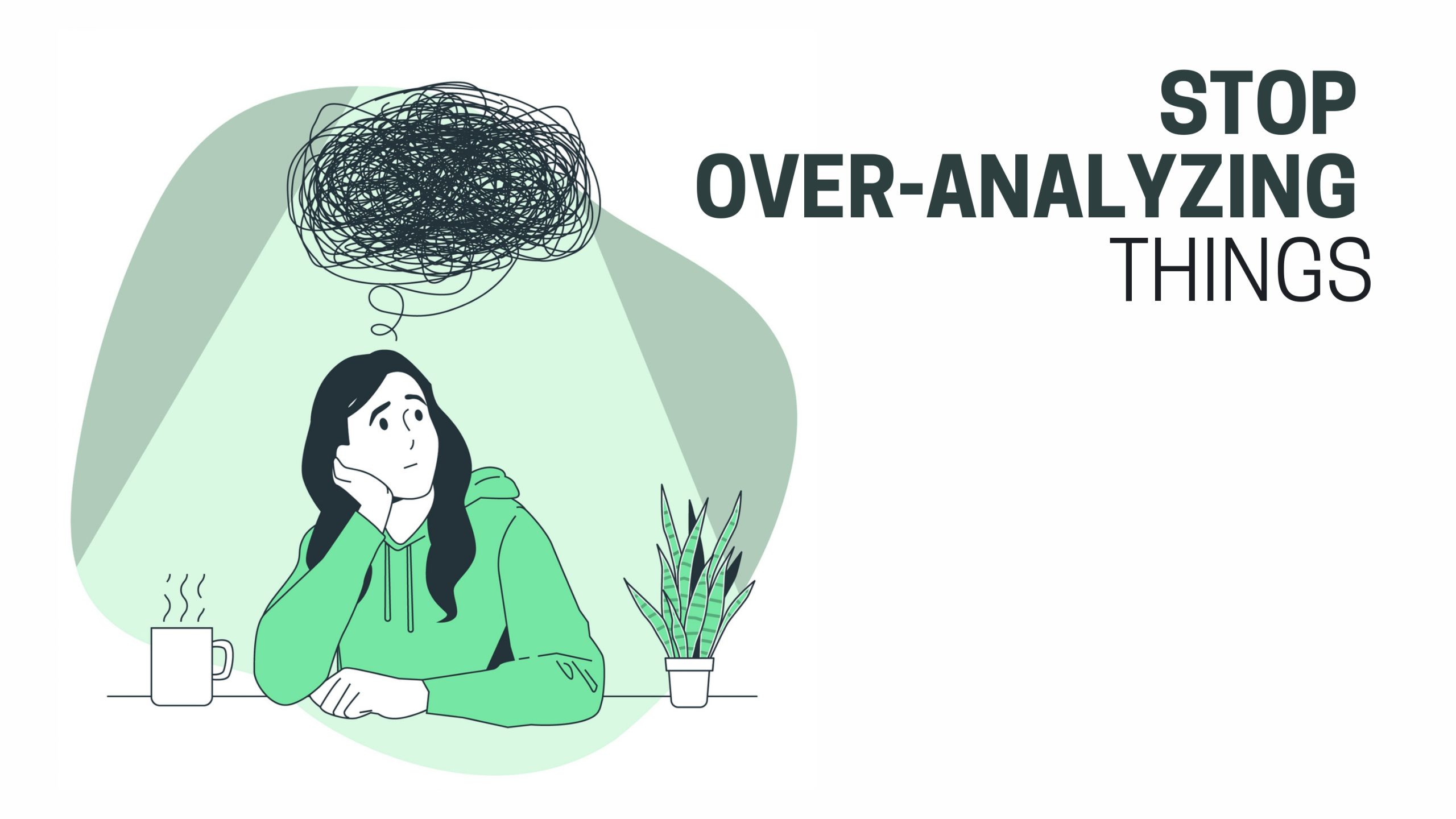Analyzing things can lead us to strong conclusions and help us make better decisions. However, overanalyzing can get in the way of the choices we make and cause a lot of anxiety. It doesn’t help us reach better conclusions either.
Look out for the signs
The first step is to know when you begin overanalyzing and are going too far. It is useful to recognize the signs of it in your mind and in your body. Learn to ask yourself: Am I overthinking? Is this thought train taking me somewhere? Am I repeating myself over and over?
Another way is to focus more on how you feel and what you experience physically. Overanalyzing can feel heavy and unpleasant, like you’re working very hard, but are not achieving any results. You might notice tension or fatigue in the body or that your head doesn’t feel clear.
Learn to recognize the signs in you and pay attention, gently and without judgment, to your body and emotions.
Give yourself permission to stop
The second step is to allow yourself to stop. Acknowledge that you are not using your mind’s resources productively and that it would be fine to stop rather than continue. Often, we feel as if we were somehow being reckless if we stop, as we are not solving the problem, so this permission can be valuable to receive.
If you have a hard time letting go, make a commitment to thinking again at a later time. Schedule it even, so you can be sure you will return to it. But don’t allow it to take over your mind outside the time you’ve set for yourself.
Say stop
The stop technique involves thinking or saying out-loud “stop” to halt the train of thought. You might visualize yourself stopping the thoughts, however you imagine them: as a thread that you cut or a television that you turn off.
Sometimes, this will be enough to stop the overanalyzing, but other times, you might find yourself returning to the thoughts time and again.
Seek distractions
A good idea is to distract yourself and pursue things or activities that will keep your brain busy. It might not be the best to look for easy things that only engage you on a superficial level. You might instead try to find tasks that are interesting and draw you in.
It’s useful to try out things that are more physical, like exercise. Other activities that are good for a distraction are cleaning, gardening, cooking, or doing any craft that requires more attention. Find something that you enjoy and can help you feel busy and focus on it. If you find yourself drifting away, gently bring your mind back to the activity.
Focus on the present
Another strategy is to focus your attention on the present. This is a practice known as mindfulness, when you center on what is going on with you at the moment. What are you feeling? What are you sensing? What are you experiencing at the moment?
When you find yourself focusing on what will happen on the future or regretting the past experiences, try to bring your attention back to the present. Don’t judge yourself for the mind wandering. Simply be gentle and focus on what is going on now, by centering your attention on your feelings or sensations. You can focus on something more specific, such as your breathing, as well.
Write things down
Another simple technique is to write down all the thoughts racing through your mind. Put down what might happen in the future, what has you worried, the worst scenarios you can imagine. It’s often better to write it down by hand, but typing it can also help. You might even record a voice message, speaking all the thoughts in your mind.
Come back to them and read them. Do they still make sense to you? If not, then get rid of them. You can burn or throw the paper out.
The goal of this strategy is to reduce your overthinking and take a new perspective on the thoughts in your head when you see them on paper or hear them spoken.
Overanalyzing can be insidious, but it’s also a behavior you can stop with simple techniques. You are sure to find that it is leeching your energy and that your head is much clearer when you engage less in this thinking pattern.


